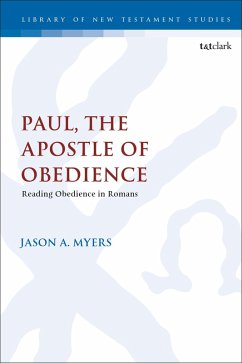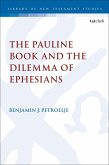Jason A. Myers reconsiders the meaning and context of the phrase "the obedience of faith" in Rom 1:5 and how it contributes to the theme of obedience in Romans. In contrast to previous studies that have nearly exclusively focused on the obedience language in light of the Hebrew Bible and Second Temple literature, Myers instead investigates how this language functioned within the Greco-Roman world, particularly in the discourse of the Roman Empire.
By studying both the Greco-Roman contexts and the use of obedience language during the Empire, Myers sheds fresh light on the meaning of "the obedience of faith," and concludes that such examination helps contemporary readers understand how Gentiles in Paul's audience would have heard and received the terms and images relating to obedience. In addition, he argues that Paul's use of obedience language, both at the beginning and end of Romans (1:5; 15:18), serves as rhetorical bookends, and signals a theme that is central to Paul's purpose in Romans and integral to his calling as an apostle to the Gentiles.
By studying both the Greco-Roman contexts and the use of obedience language during the Empire, Myers sheds fresh light on the meaning of "the obedience of faith," and concludes that such examination helps contemporary readers understand how Gentiles in Paul's audience would have heard and received the terms and images relating to obedience. In addition, he argues that Paul's use of obedience language, both at the beginning and end of Romans (1:5; 15:18), serves as rhetorical bookends, and signals a theme that is central to Paul's purpose in Romans and integral to his calling as an apostle to the Gentiles.









